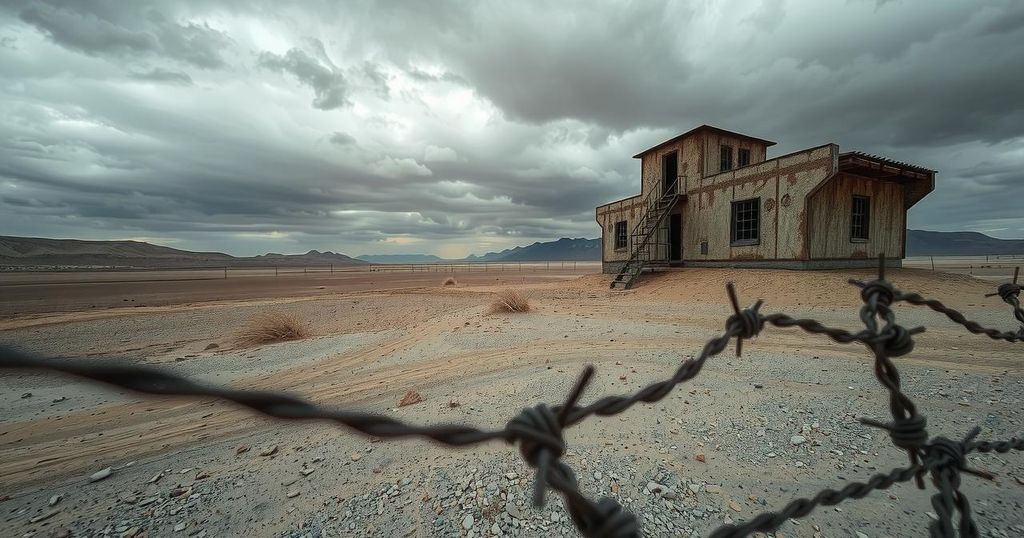Trump Administration Proposes Controversial Deportation of Migrants to Libya
The Trump administration is considering deporting migrants to Libya, raising serious human rights concerns due to the country’s conflict and the inhumane conditions in its detention centers. Advocacy groups have strongly criticized the plan, citing risks of torture and violence for detainees. The feasibility of such a deportation is also questioned amidst logistical and ethical challenges. Secretary of State Marco Rubio confirmed the administration’s search for countries willing to accept deportees, further complicating the issue.
The Trump administration is reportedly considering a controversial plan to deport migrants to detention centers in Libya, which has raised alarms from human rights organizations. According to a Reuters report, the details surrounding the nationalities of migrants destined for Libya remain uncertain. The proposal has triggered swift condemnation due to Libya’s ongoing conflict and the dire conditions of its detention centers.
Libya has gained notoriety for its harsh treatment of migrants, with many human rights groups labeling the situation as catastrophic. Amnesty International, in a powerful report last year, described Libyan detention facilities as “hellscapes” where individuals reportedly endure sexual violence, torture, forced labor, and even enslavement. Such allegations highlight the extreme risks involved should deportations take place, raising serious ethical questions about their viability.
The State Department echoed these concerns in its recent human rights practices report, categorizing the conditions in Libya’s detention centers as “harsh and life-threatening.” As of now, it is unclear whether the Trump administration has secured the necessary agreements with Libyan officials to facilitate the transfer of migrants.
Furthermore, the U.S. government has issued a Level 4 travel advisory for Libya. This advisory warns Americans against visiting the country due to various threats, including crime, armed conflict, kidnapping, and terrorism. This context brings a heightened sense of urgency to the proposed deportation plan, as it could place vulnerable individuals in further jeopardy.
At this time, the Trump administration is actively seeking methods to deter migration into the United States. Some officials have indicated that this plan fits into a broader strategy aimed at sending a message to those residing unlawfully within the U.S.: they may face deportation to nations with severe conditions.
Yet, experts express skepticism regarding the feasibility of these deportations. Past criticisms have arisen when the administration attempted to send a group of Venezuelans to El Salvador, strafing logistical and diplomatic barriers. The complexities involved in deporting individuals to a nation engulfed in turmoil like Libya could exacerbate these issues.
None can confirm precisely which migrants would be impacted by the proposed deportation to Libya or whether they would be met with detention upon arrival. Secretary of State Marco Rubio shed some light during a recent cabinet meeting, stating, “We are actively searching for other countries to take people from third countries… not just El Salvador. We are working with other countries to say: ‘we want to send you some of the most despicable human beings to your countries, will you do that as a favor to us.'” This statement encapsulates the administration’s apparent strategy: the further away migrants are sent from the U.S., the less likely they are to return.
The response to this evolving situation is anticipated to intensify as various stakeholders—including human rights advocates—continue to monitor the Trump administration’s next steps regarding the treatment and deportation of migrants.
In summary, the Trump administration’s plans to deport migrants to Libya have ignited significant concerns over human rights violations and the overall safety of detainees. Libya’s deteriorating conditions have raised serious ethical questions, not to mention logistical challenges in enforcing such a strategy. Given the State Department’s advisory and the mounting criticism, the situation remains complex and fraught with uncertainty as the administration seeks to deter unlawful migration. The effectiveness and morality of this approach will likely be subjects of intense scrutiny moving forward.
Original Source: m.economictimes.com




Post Comment